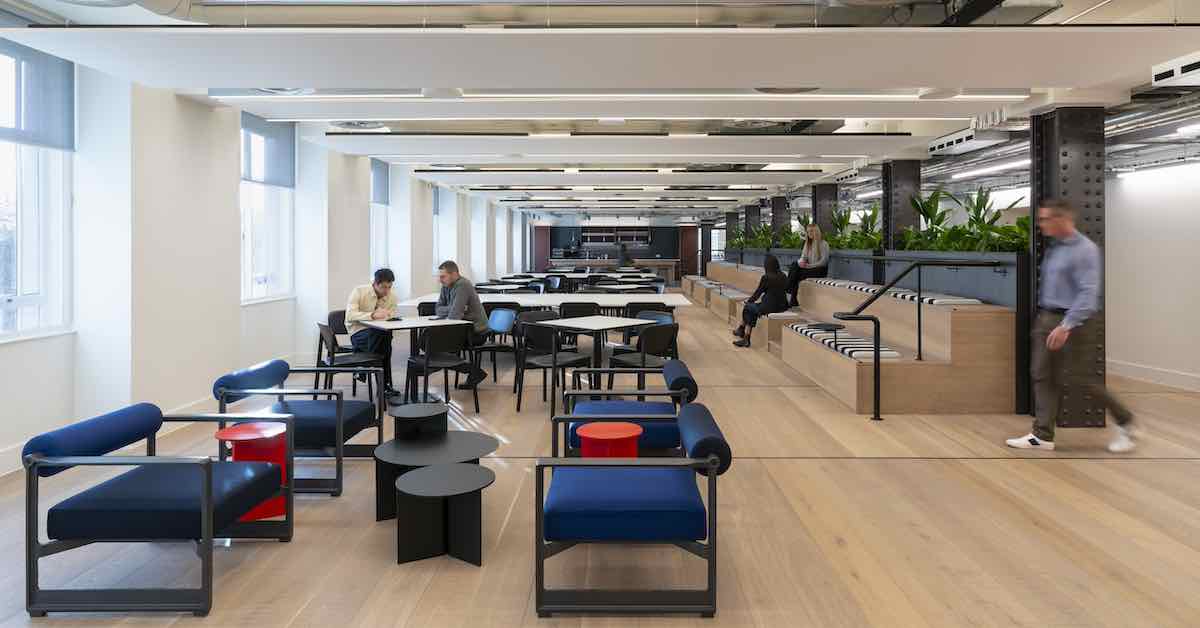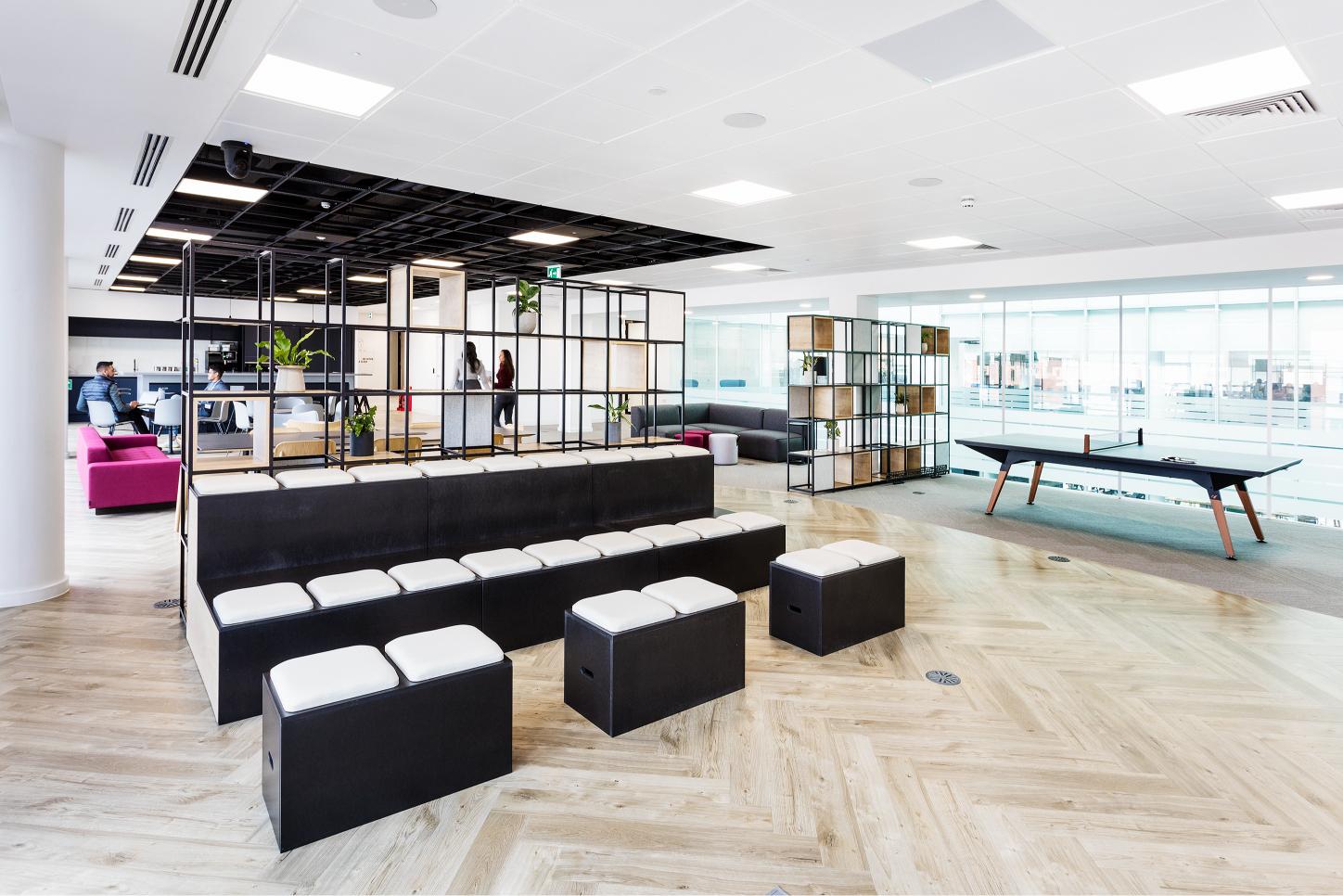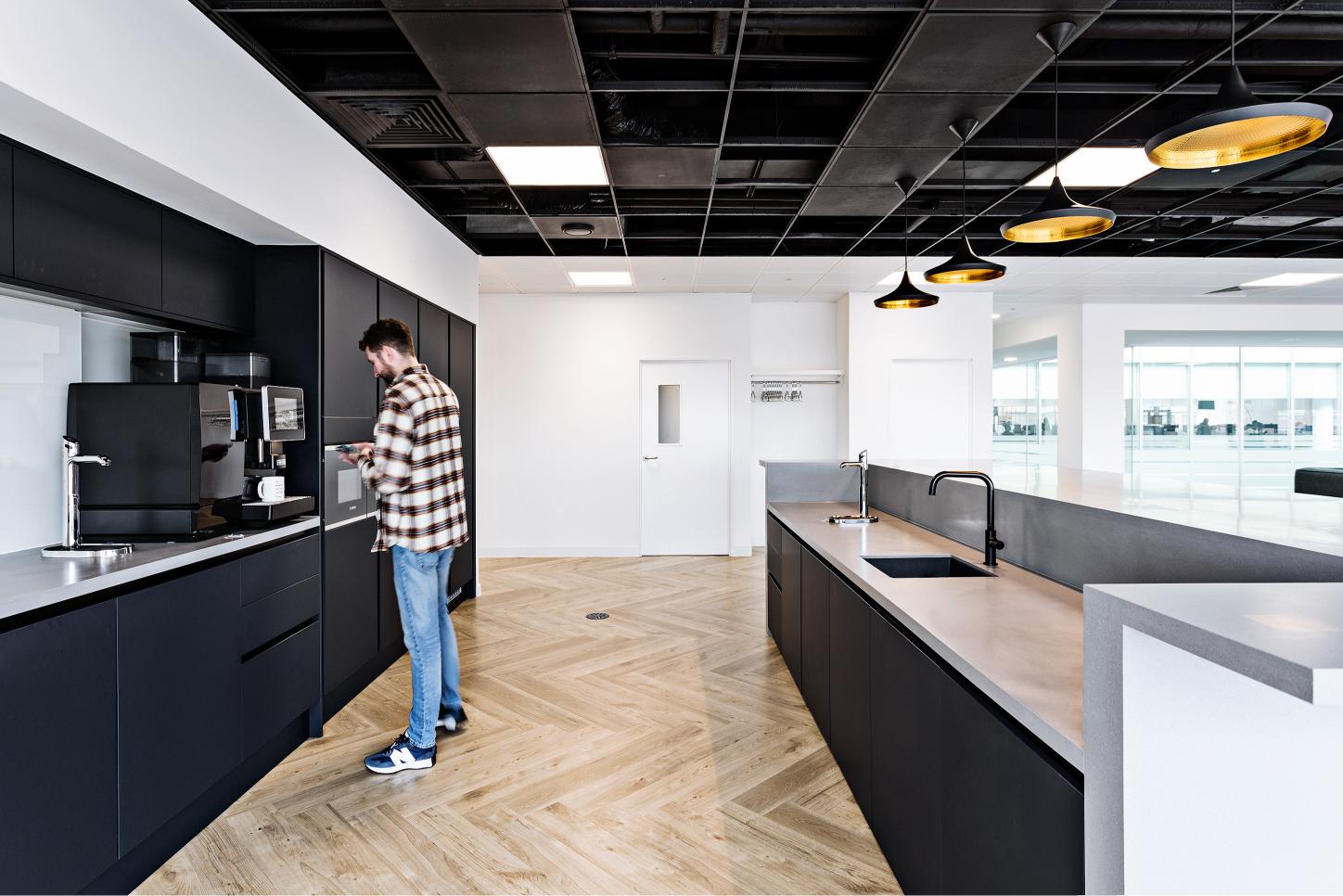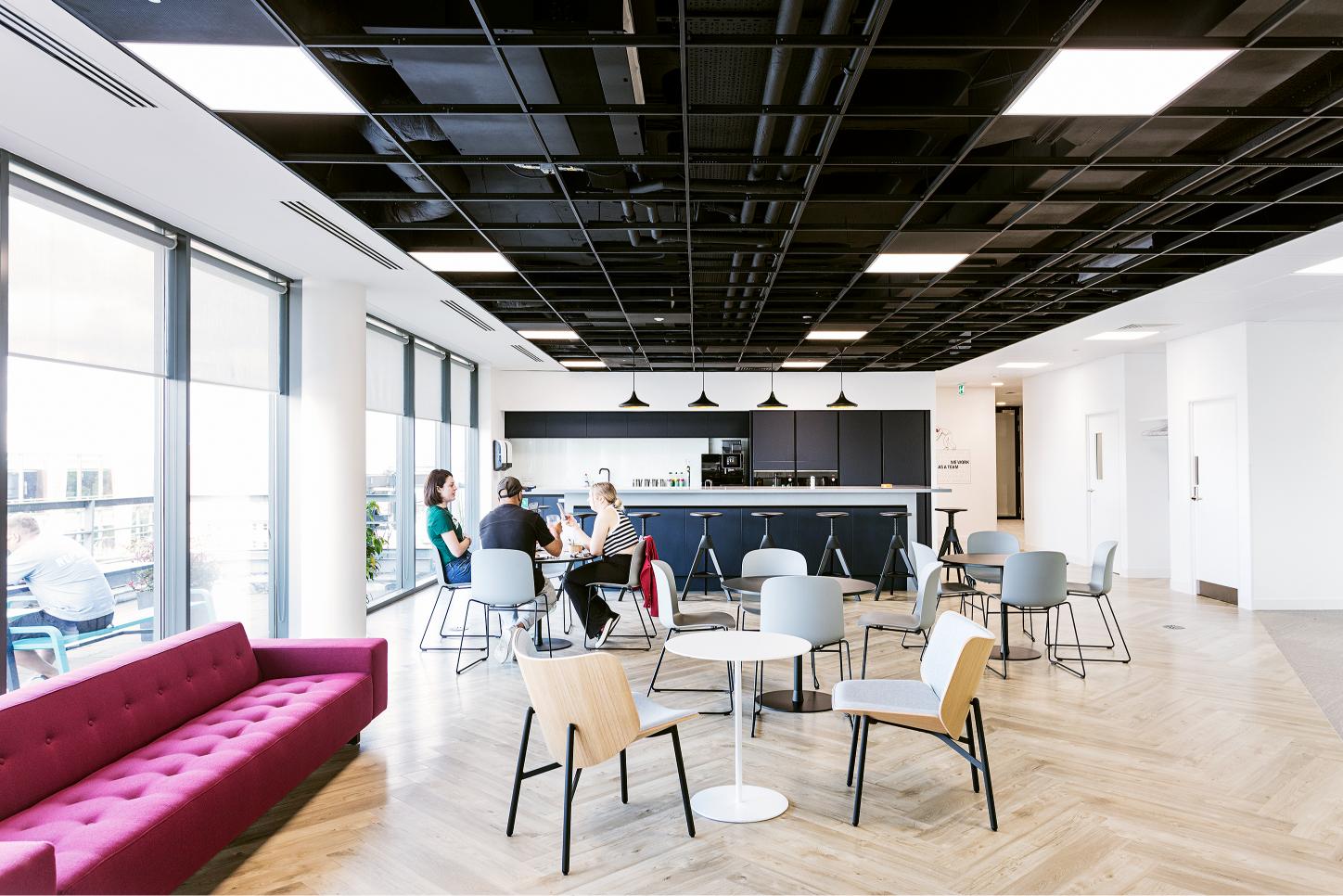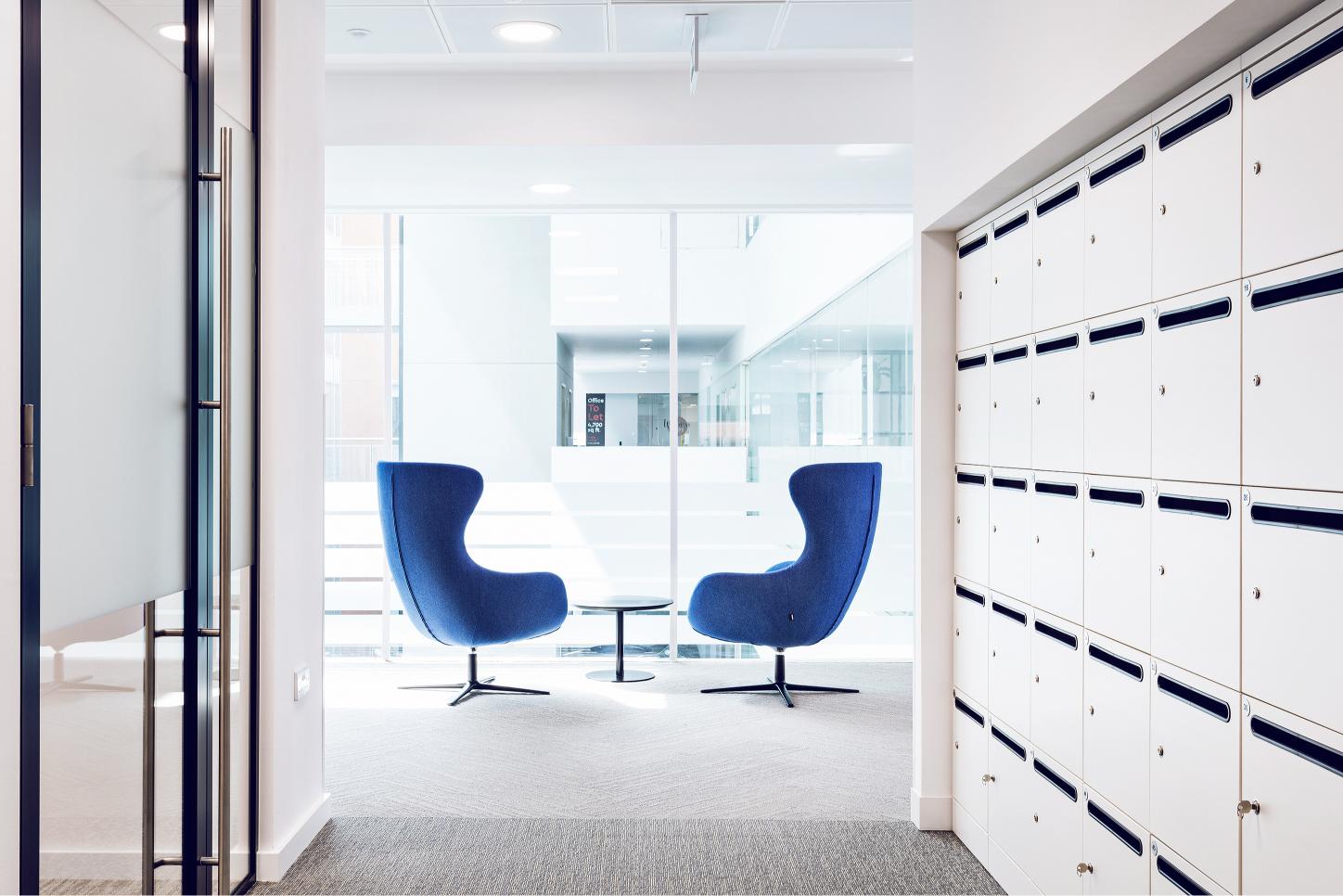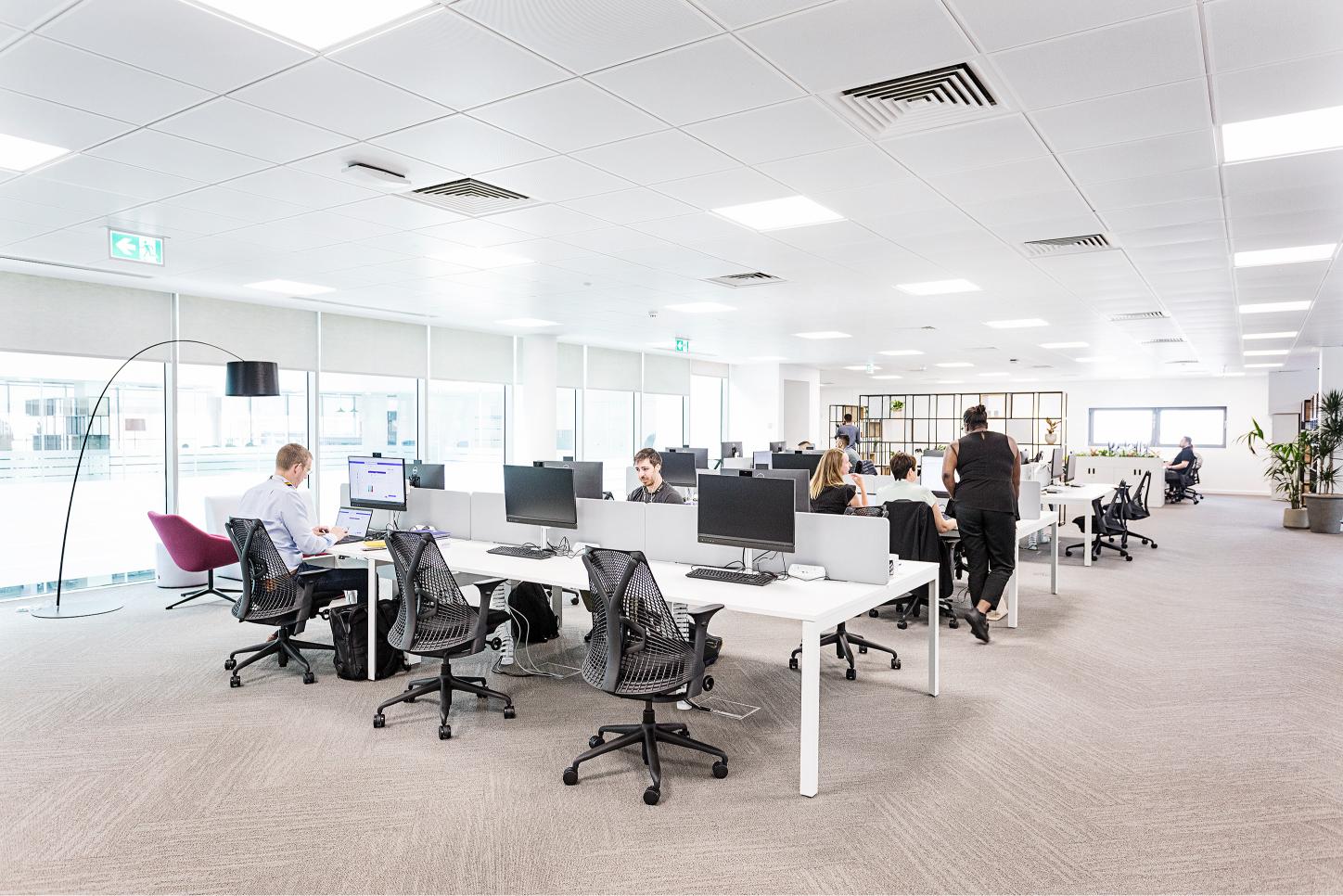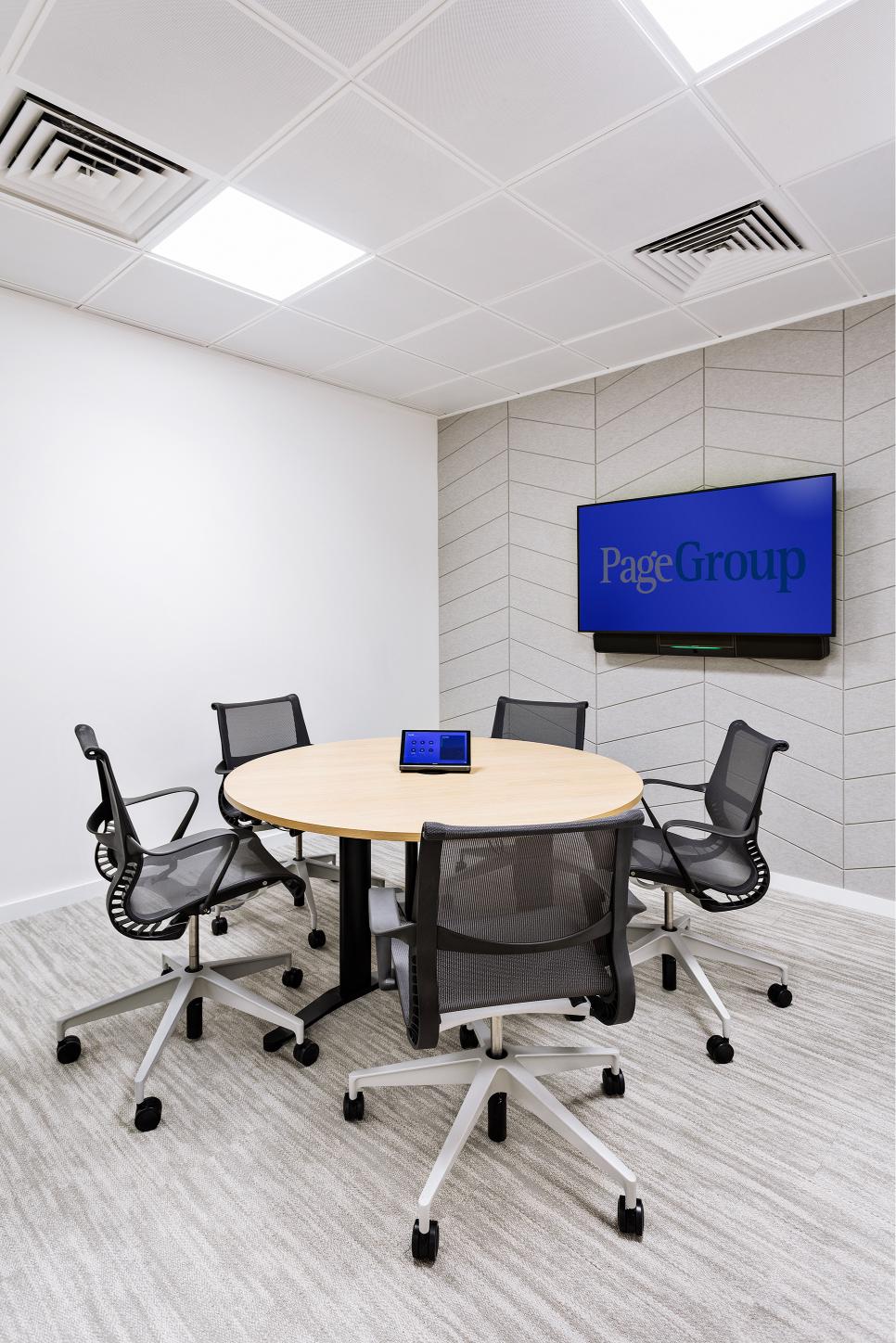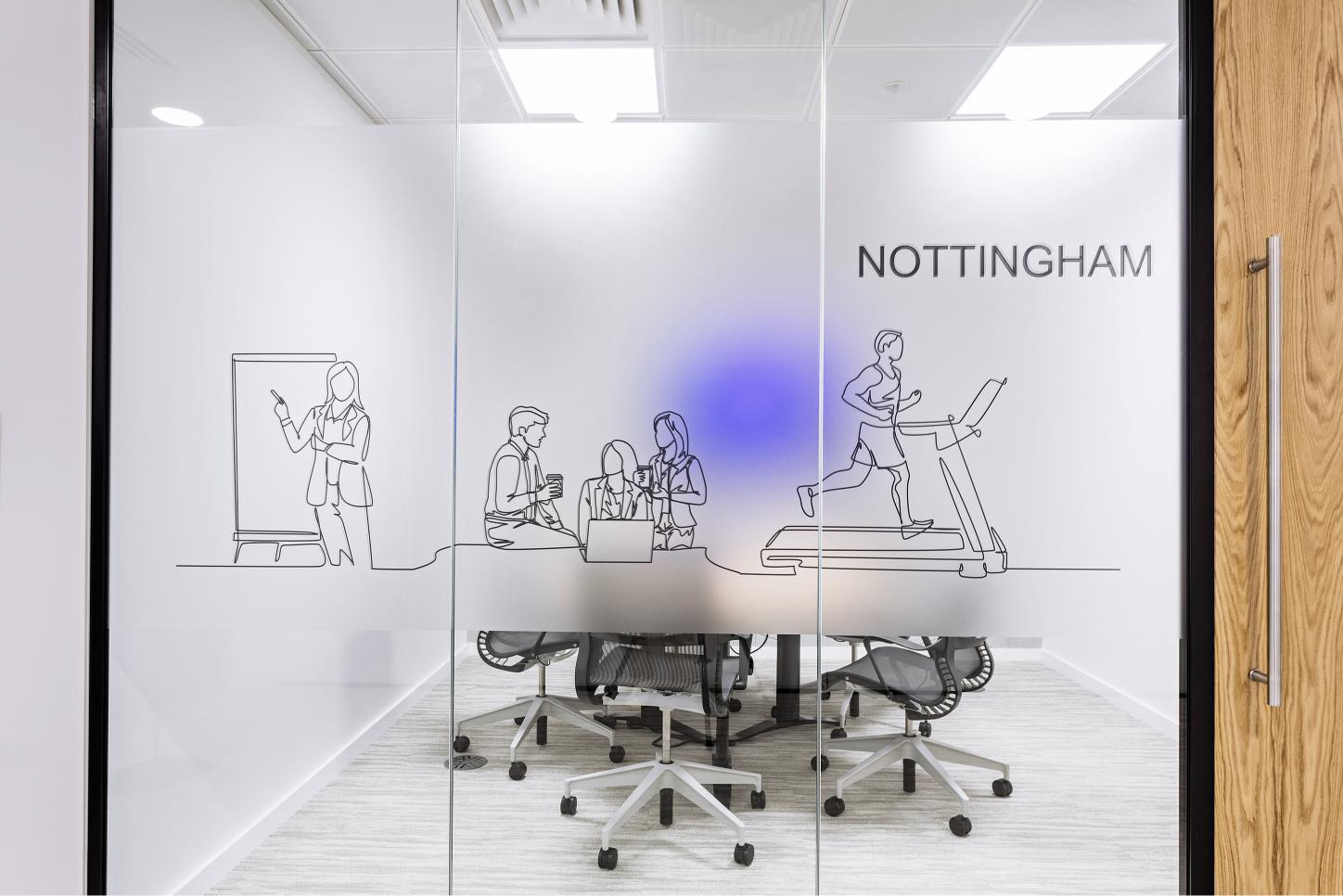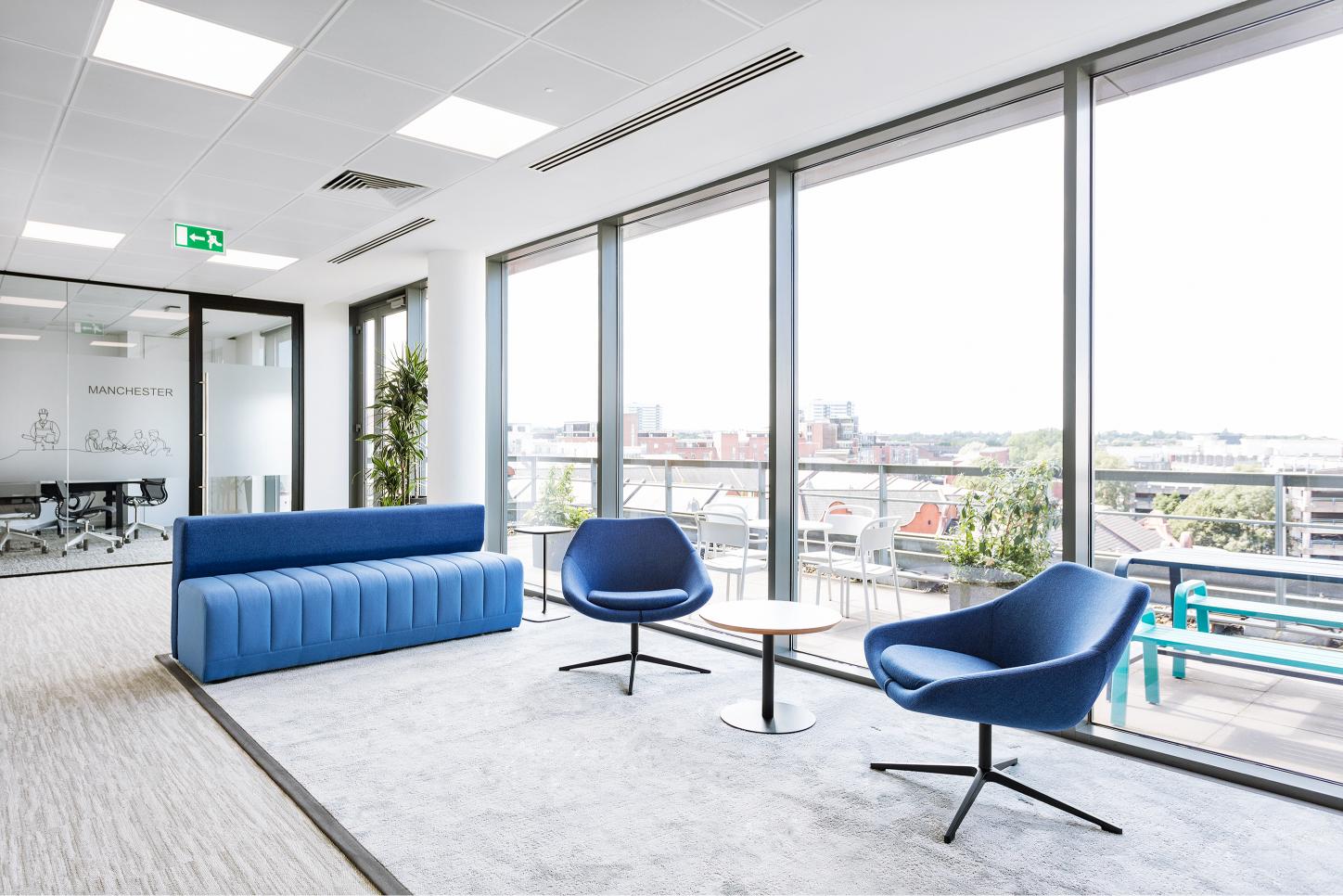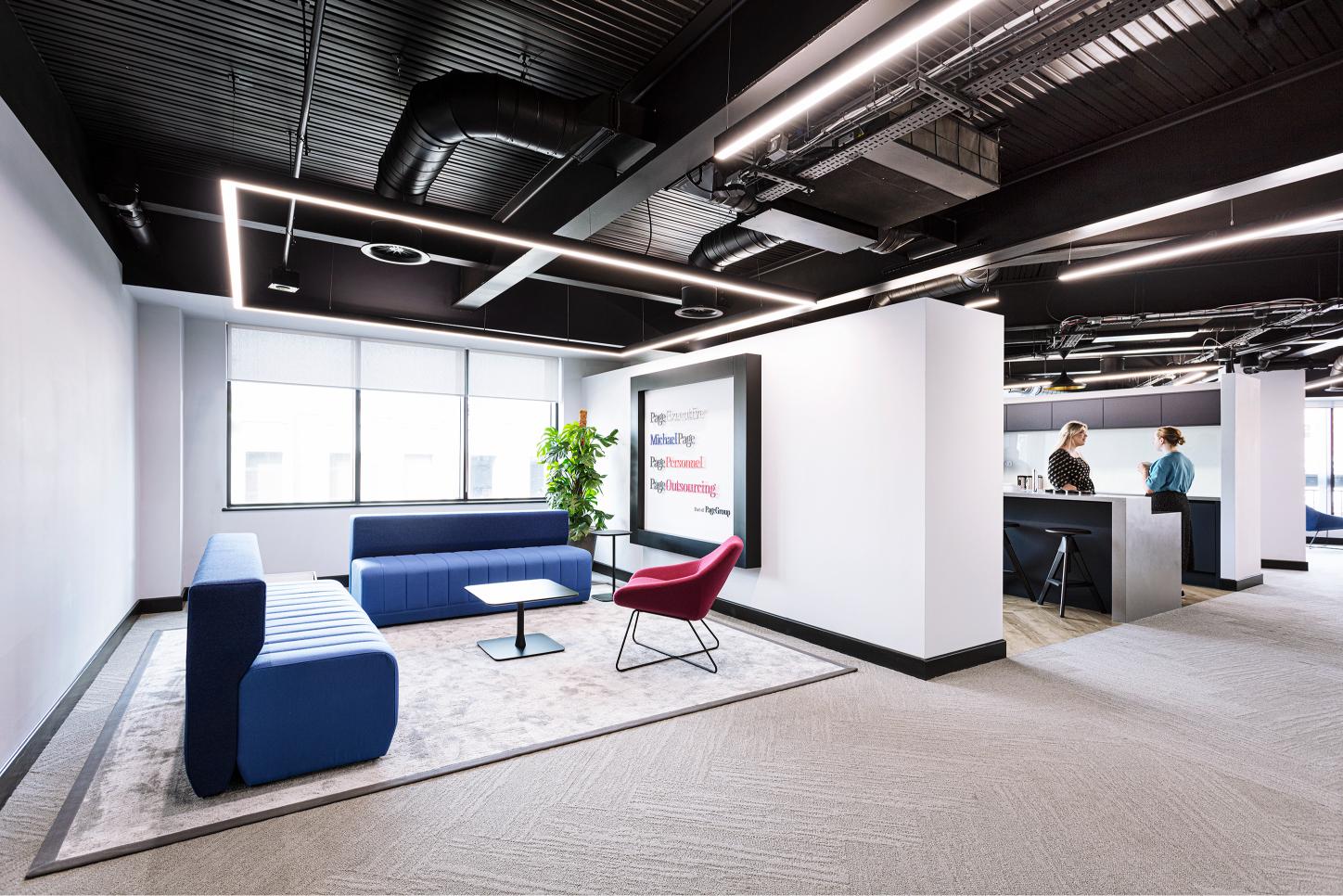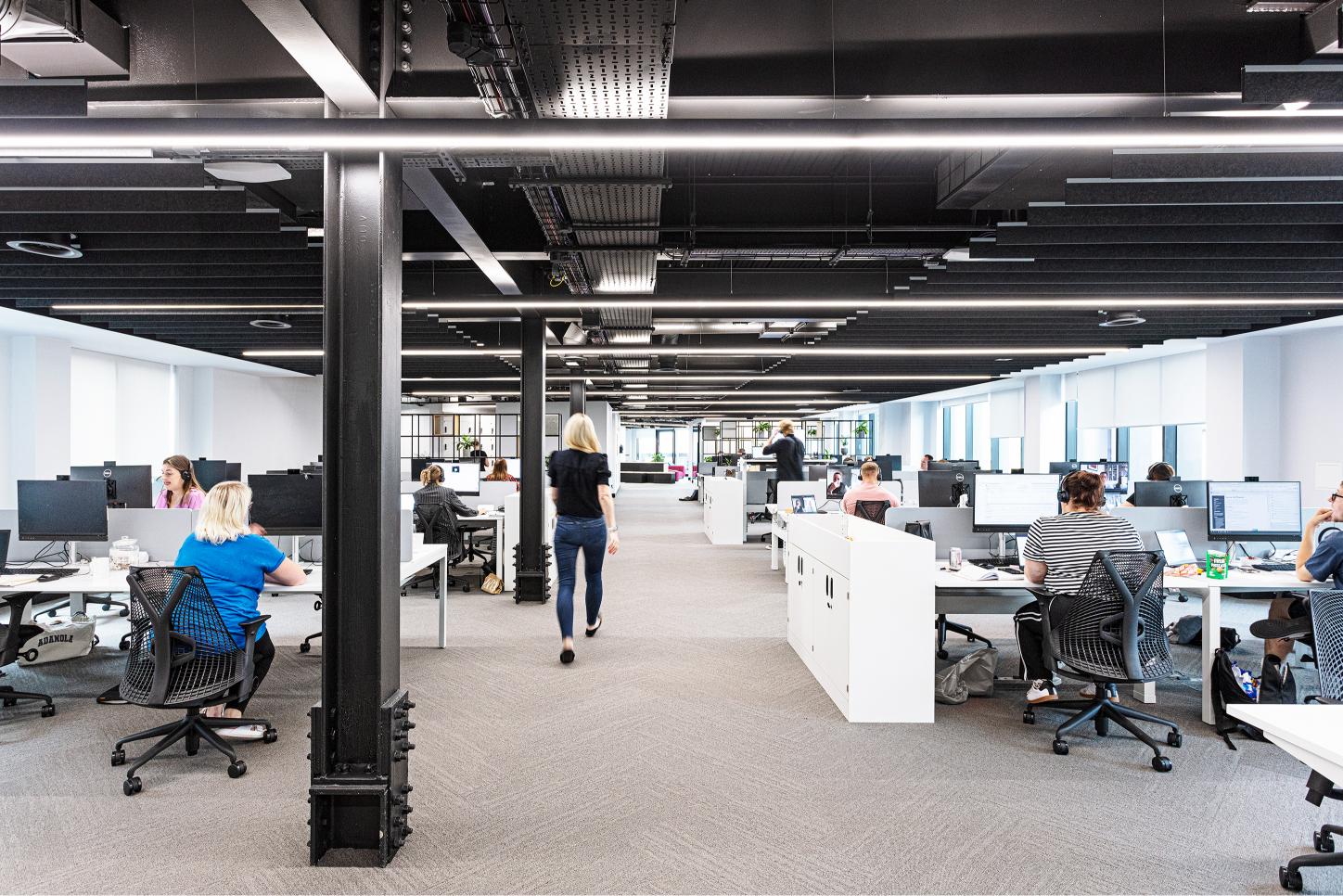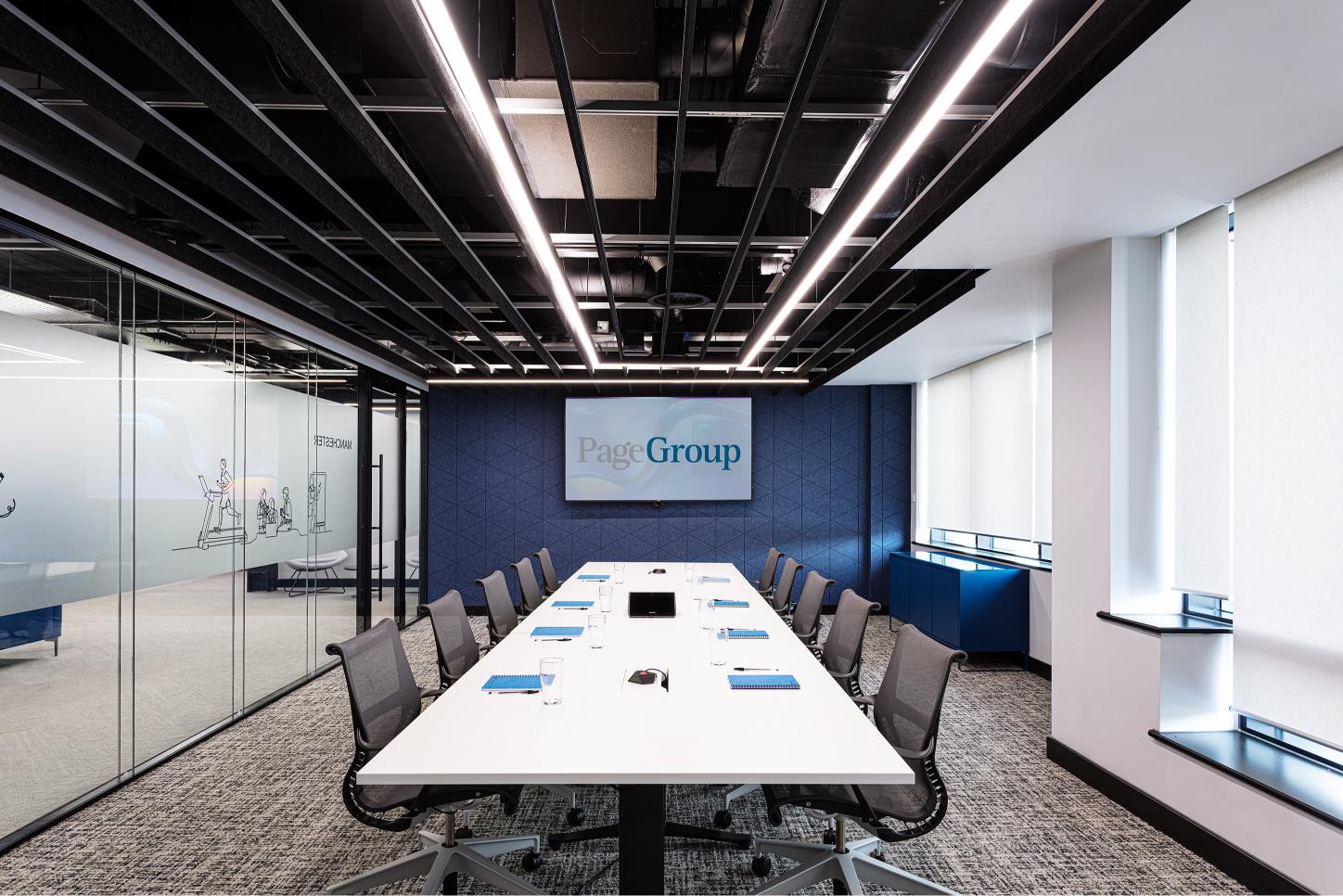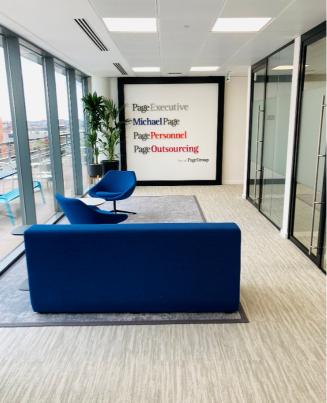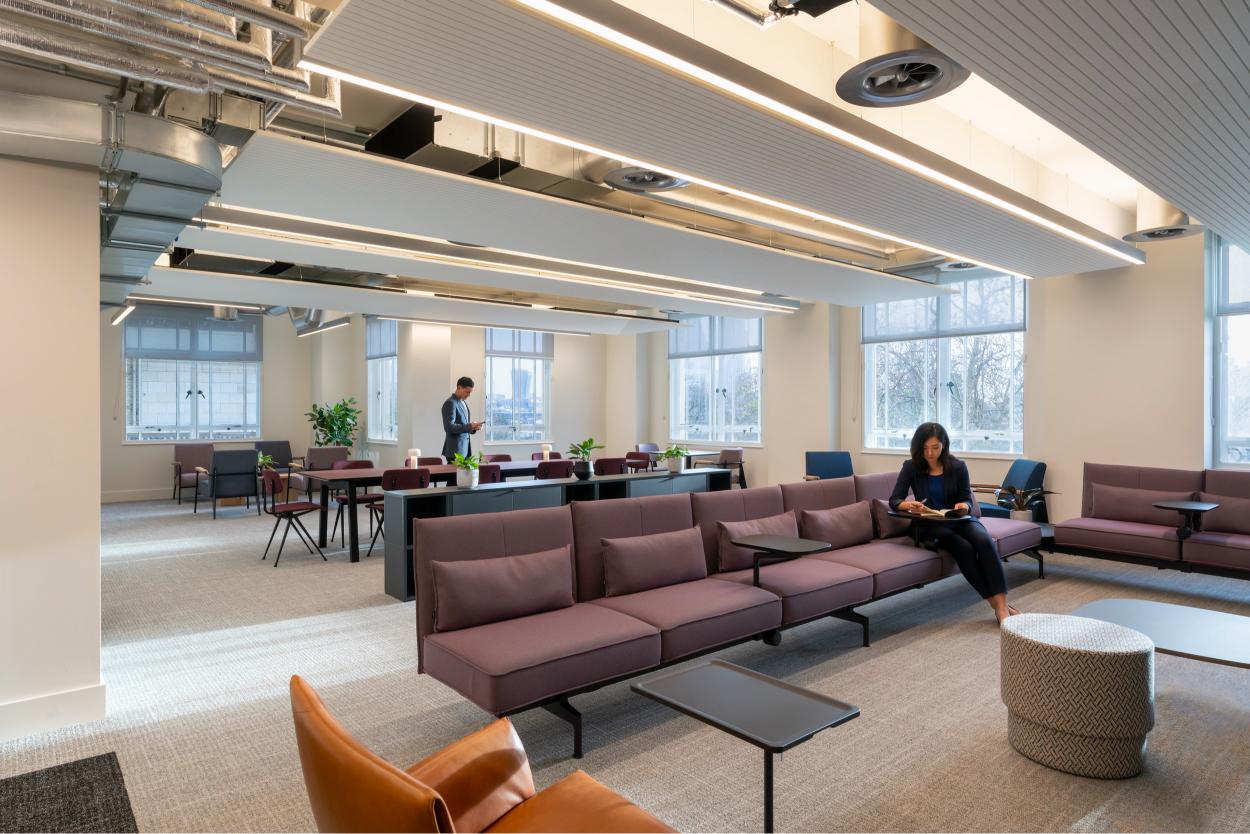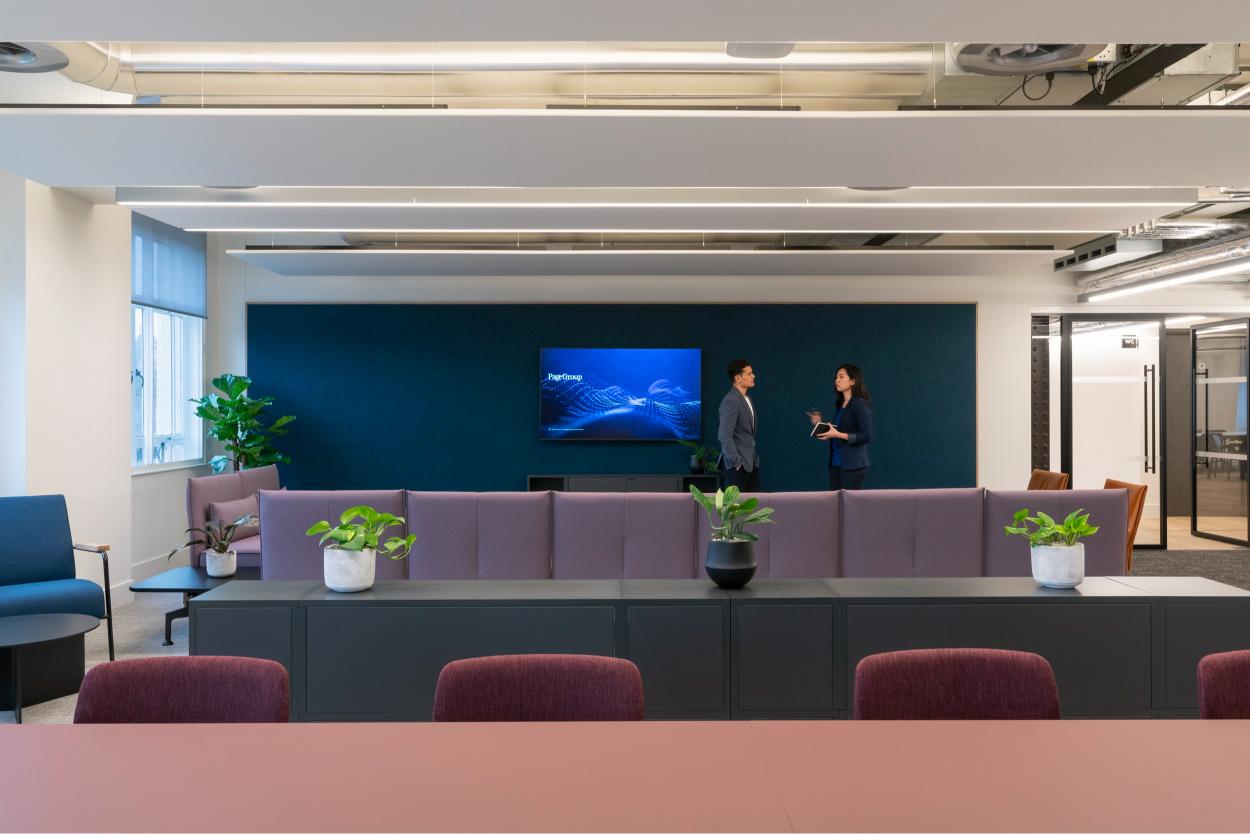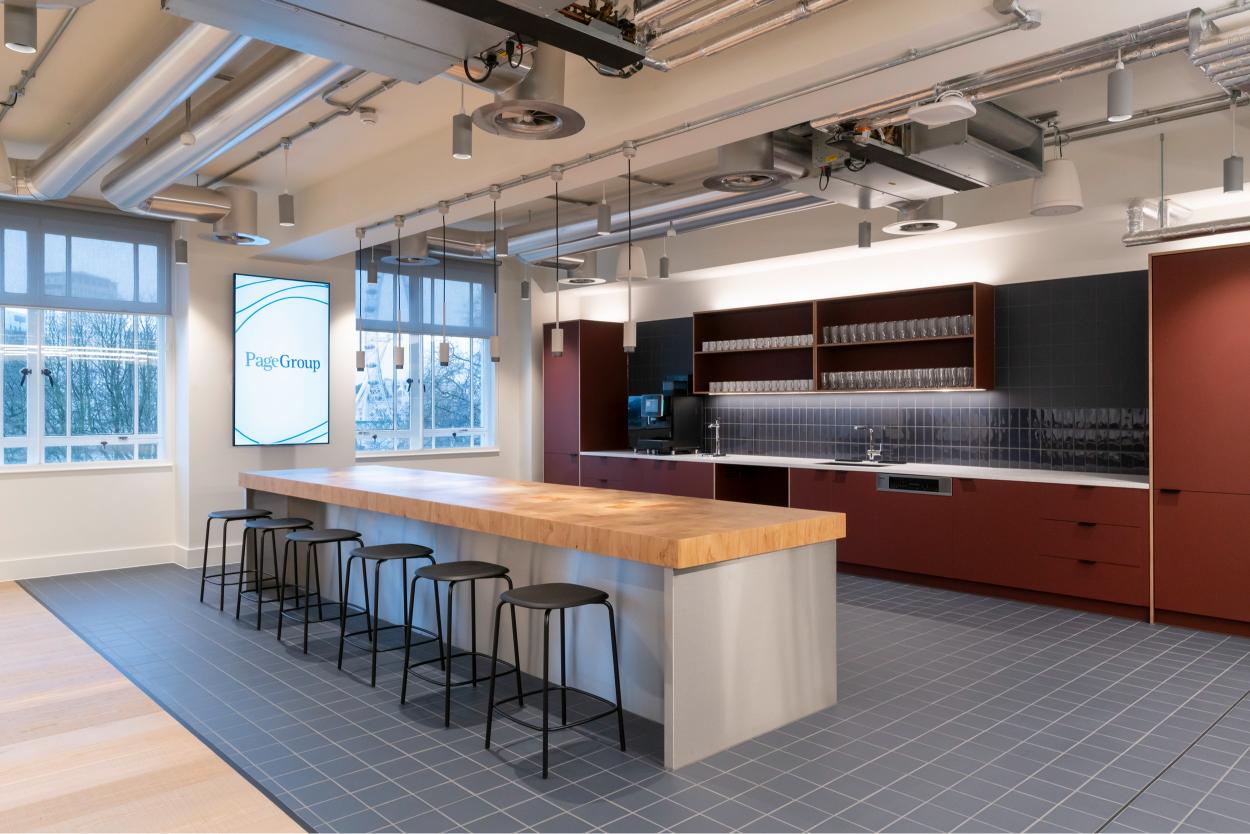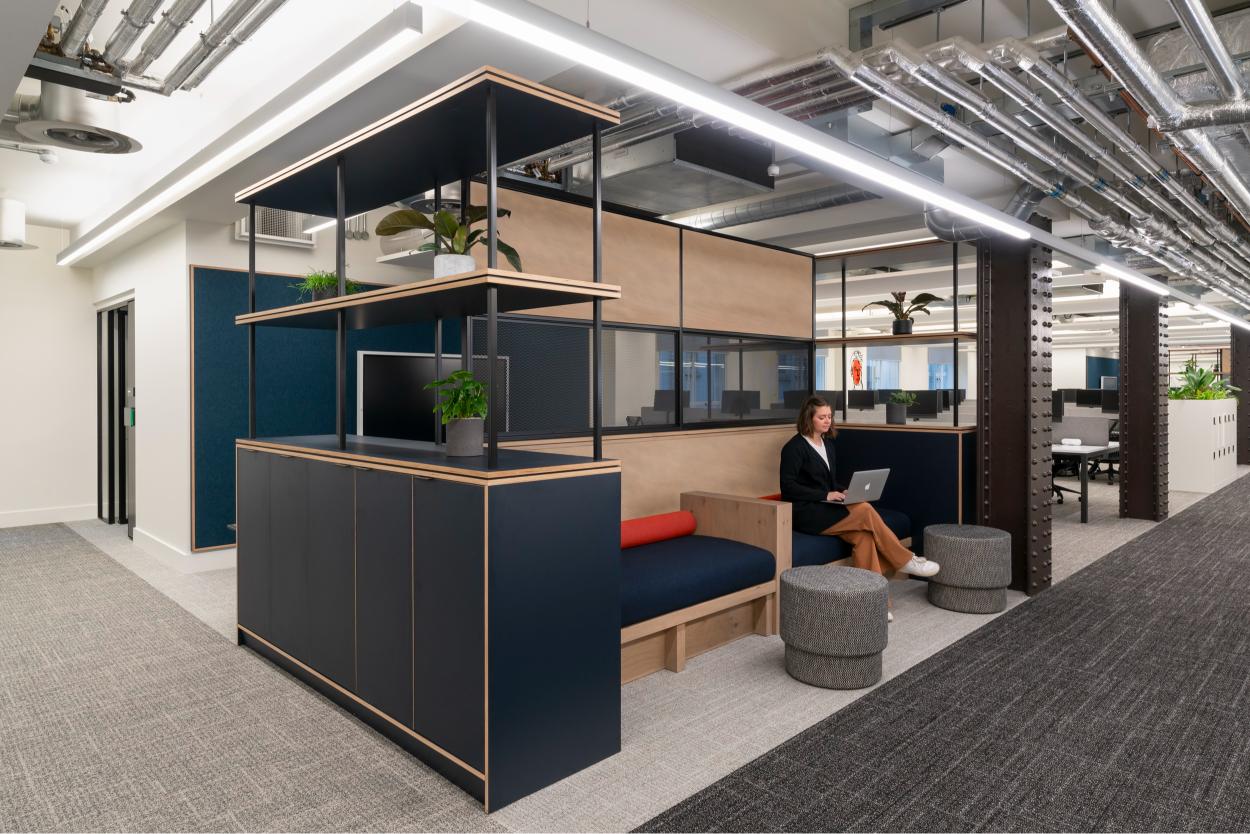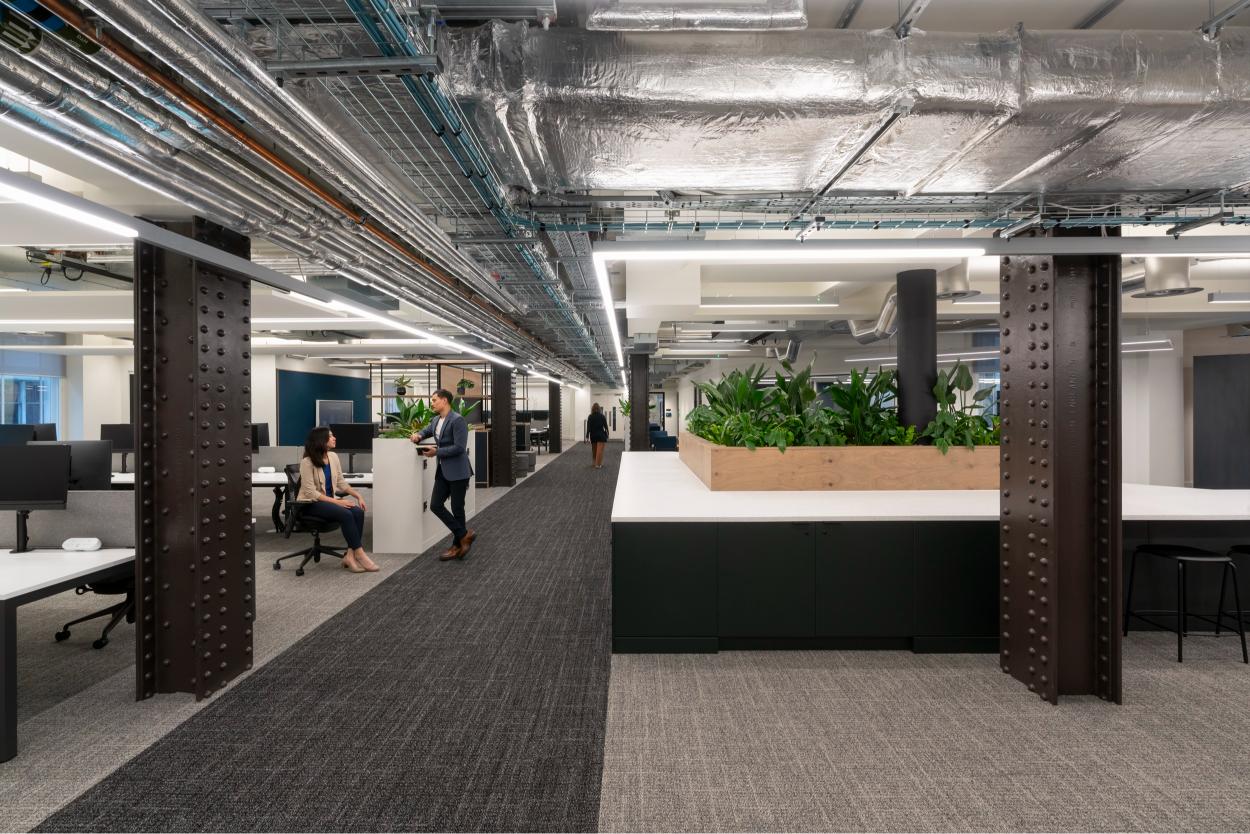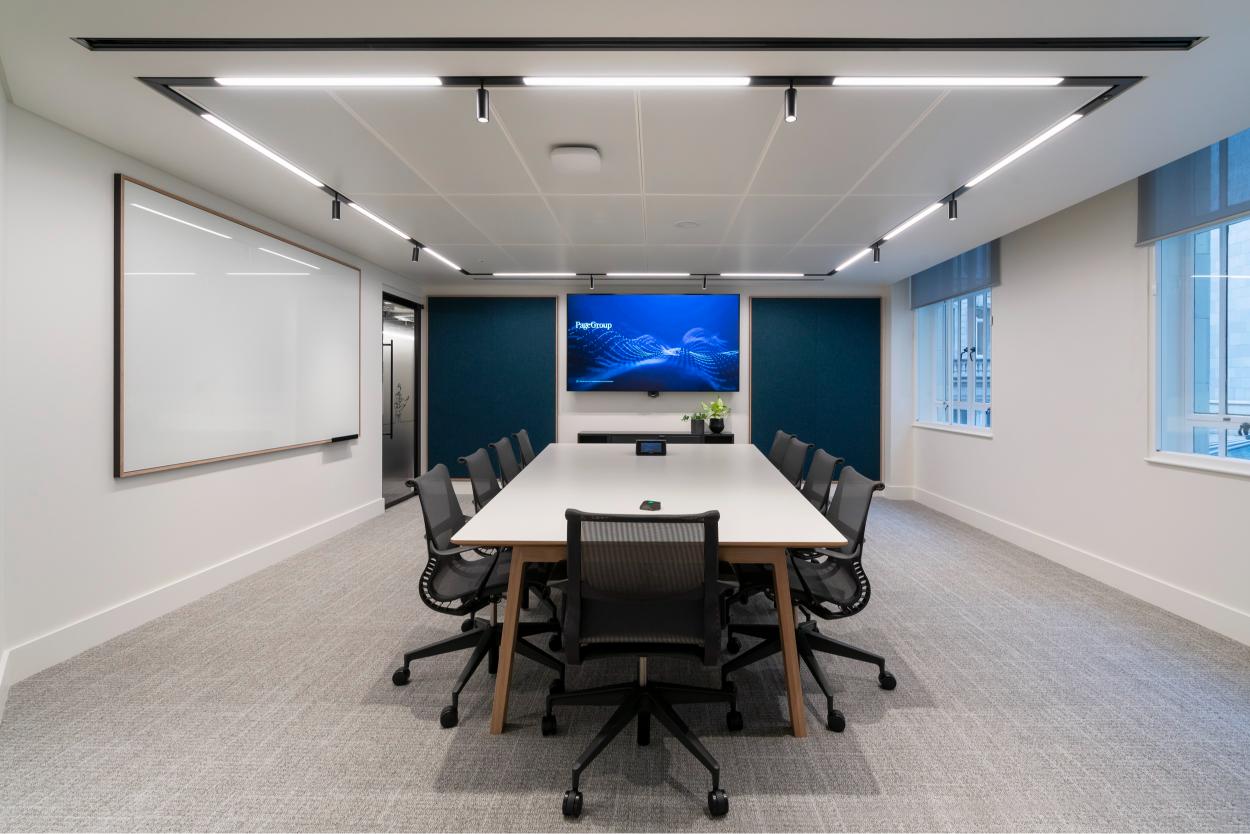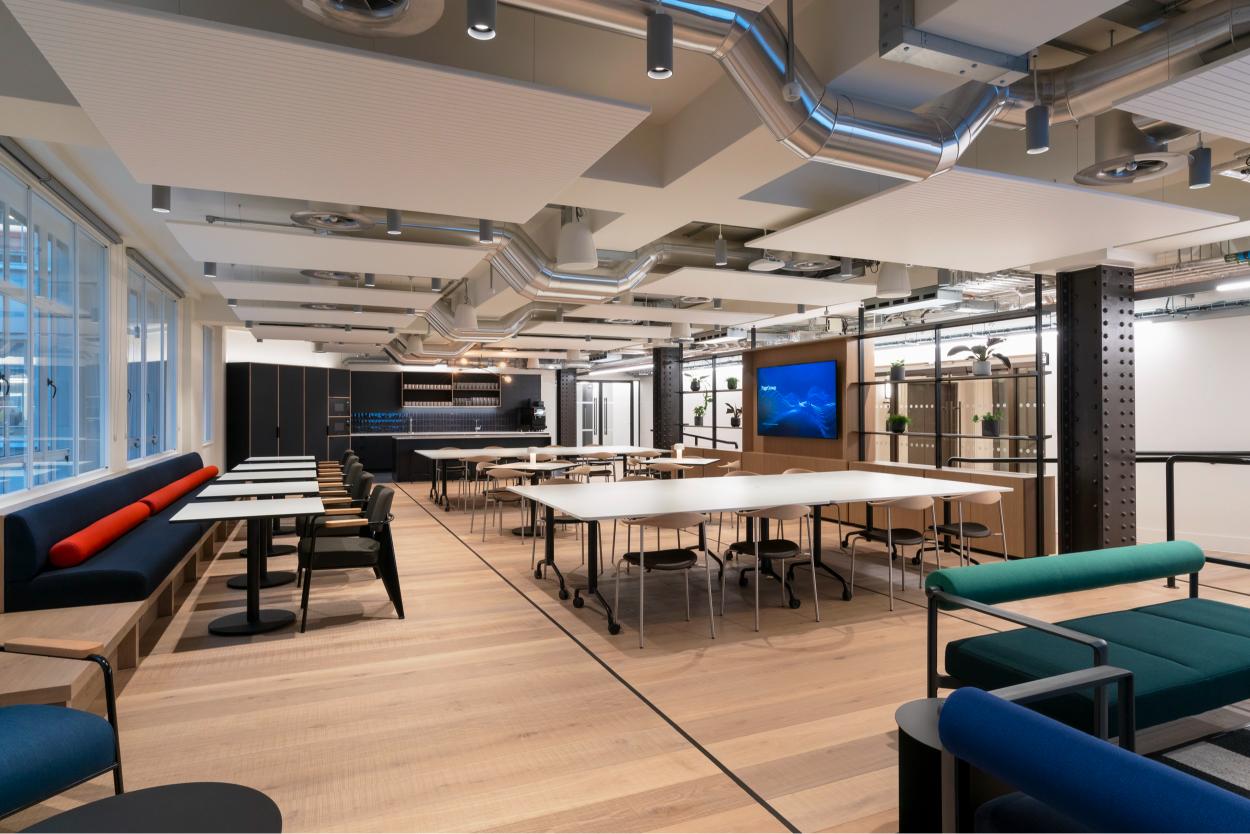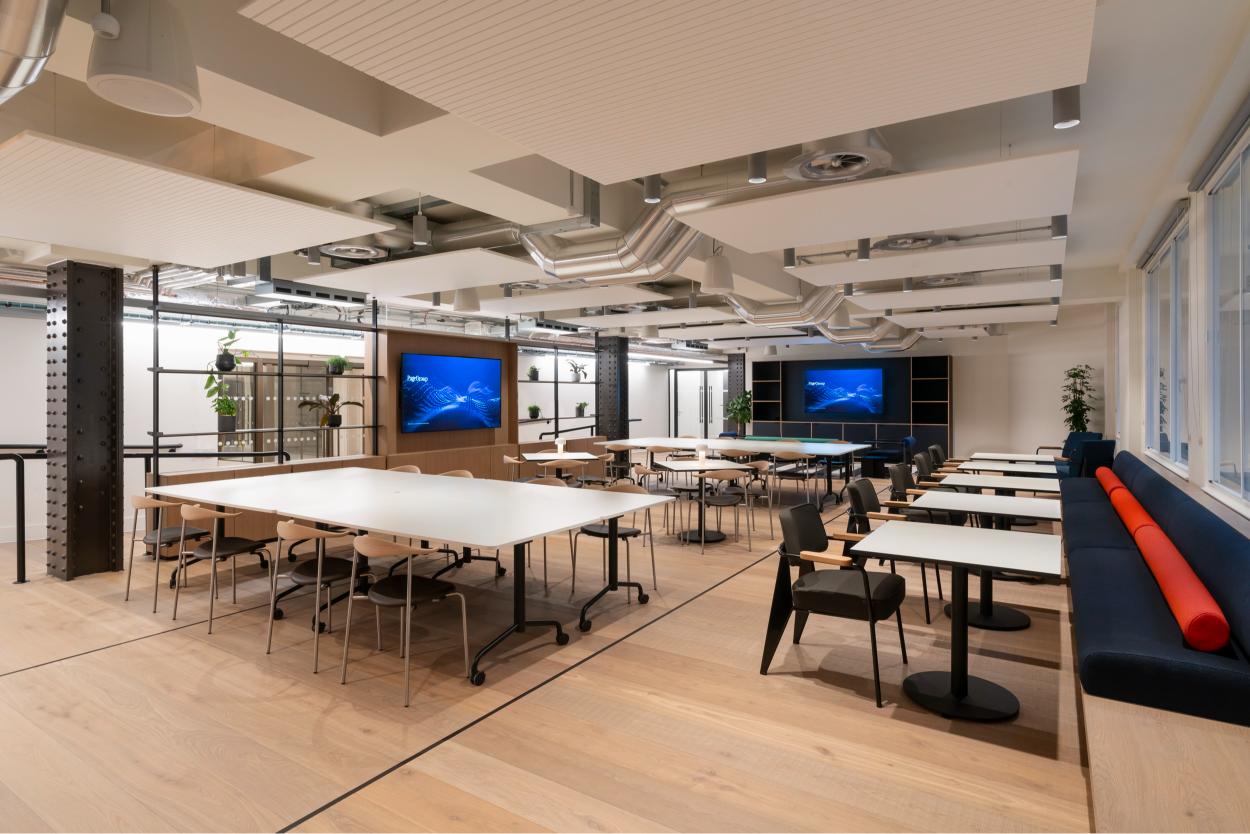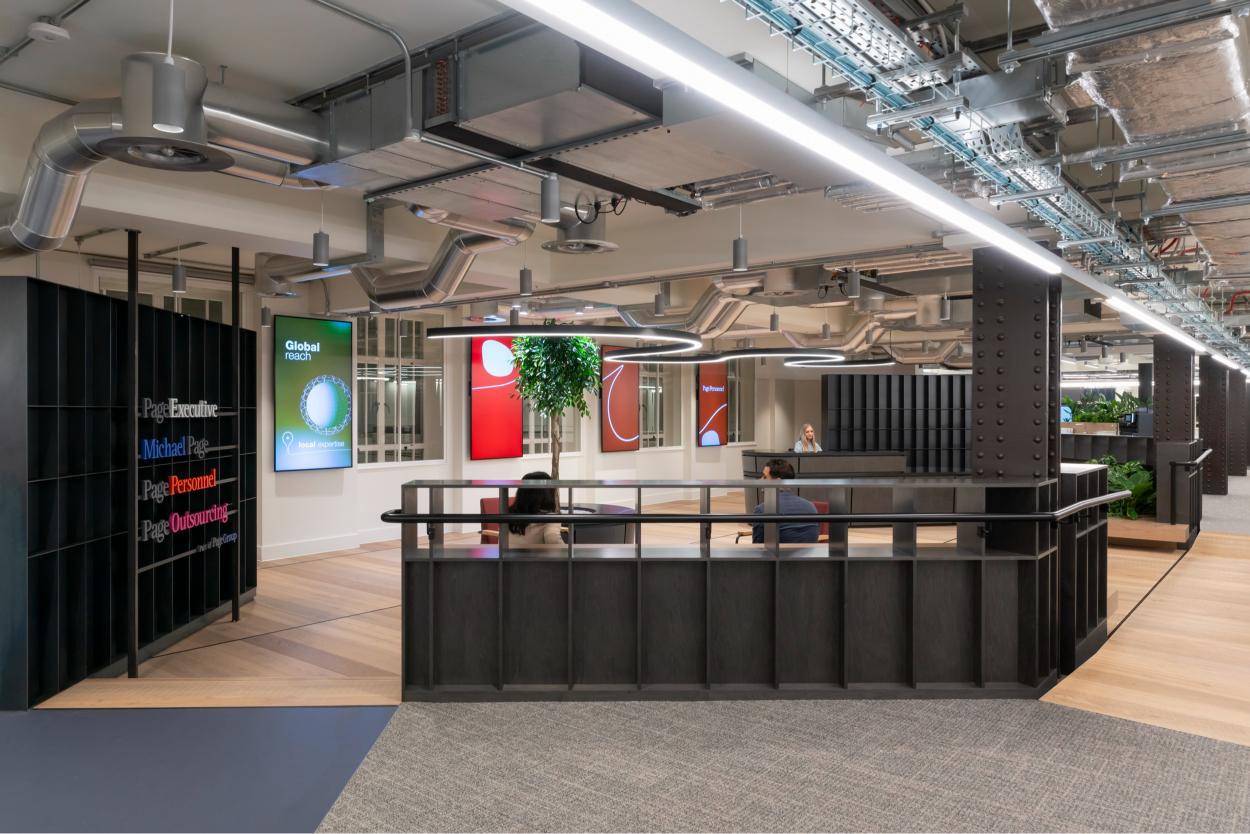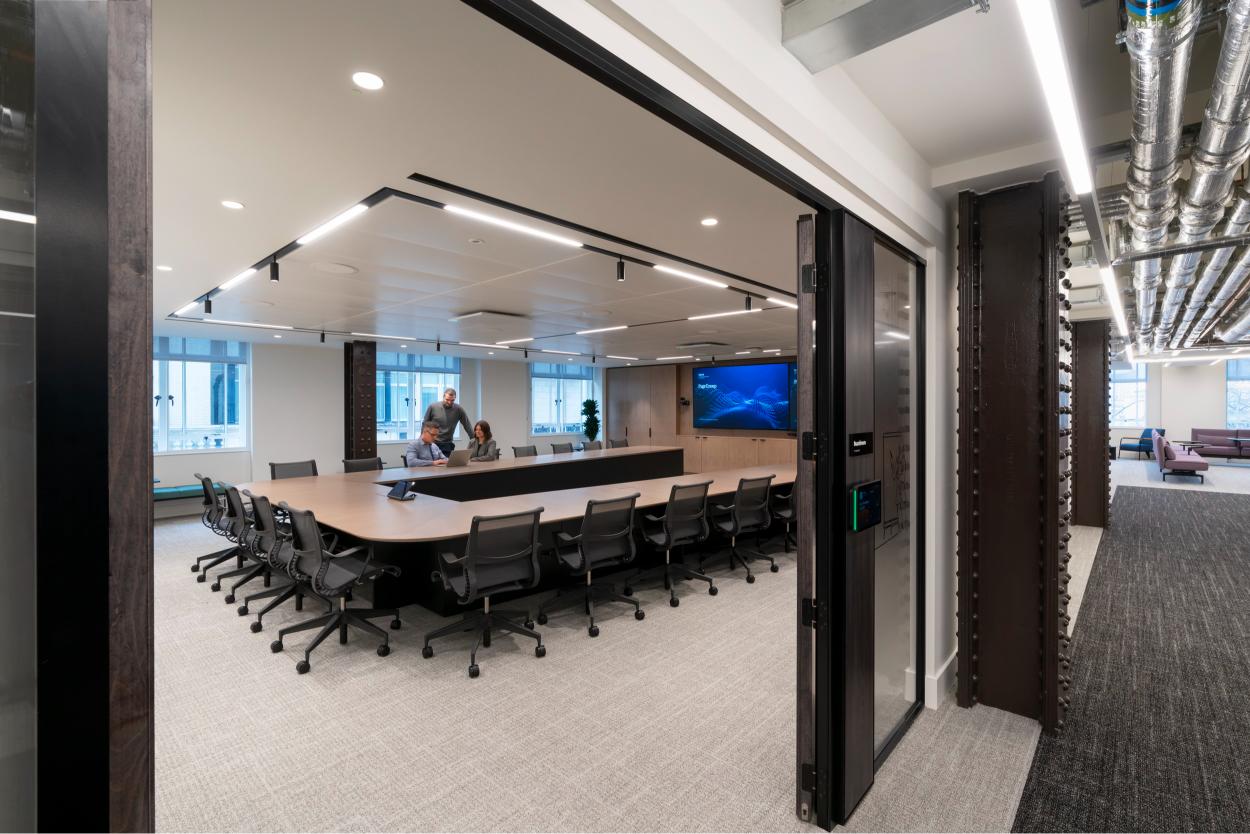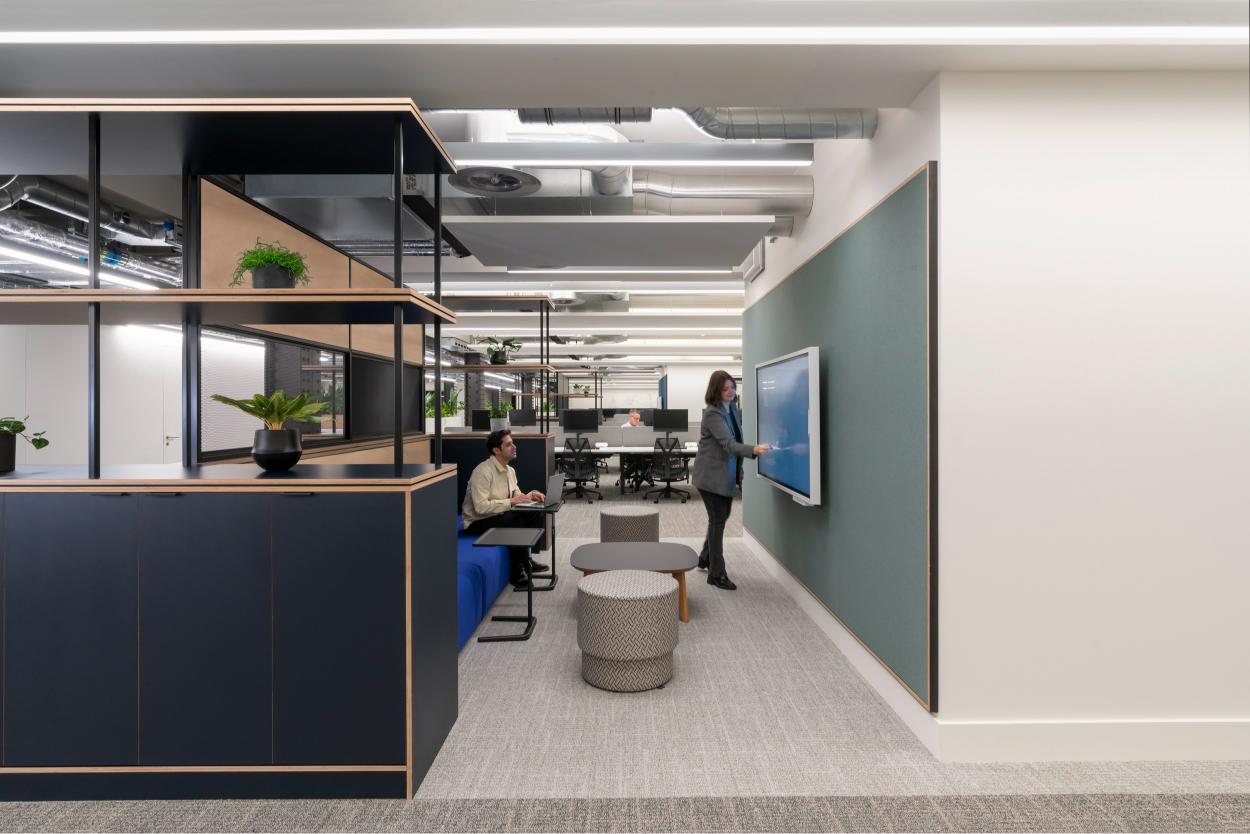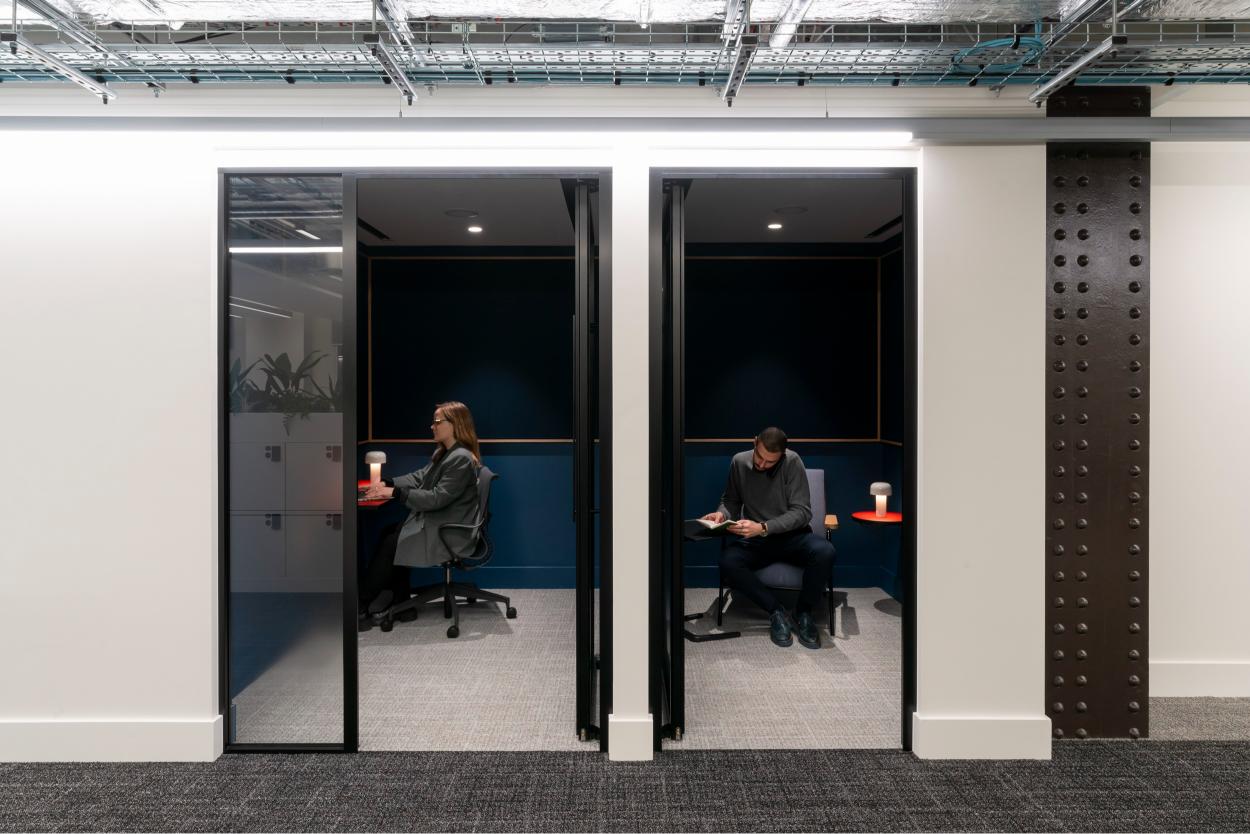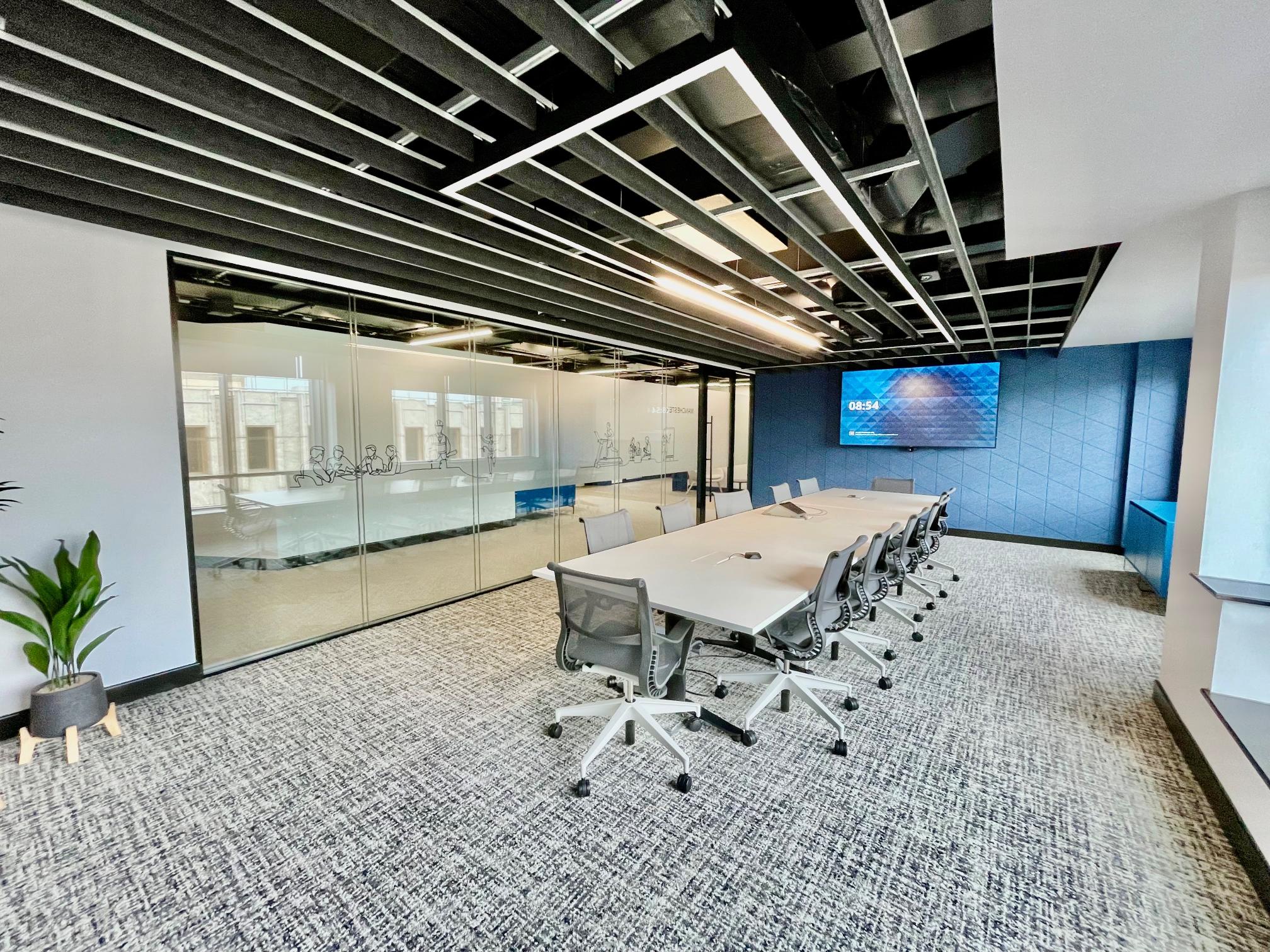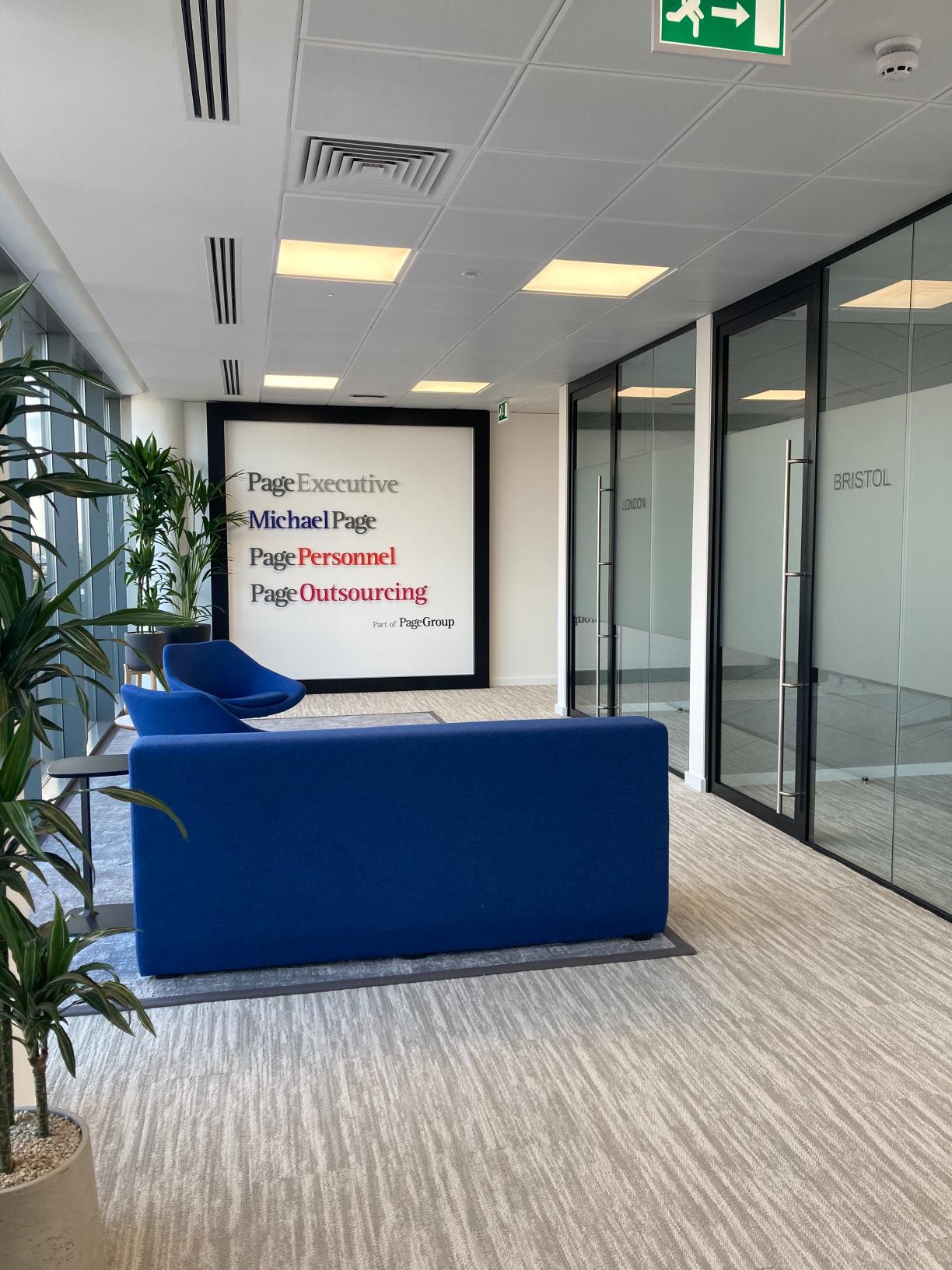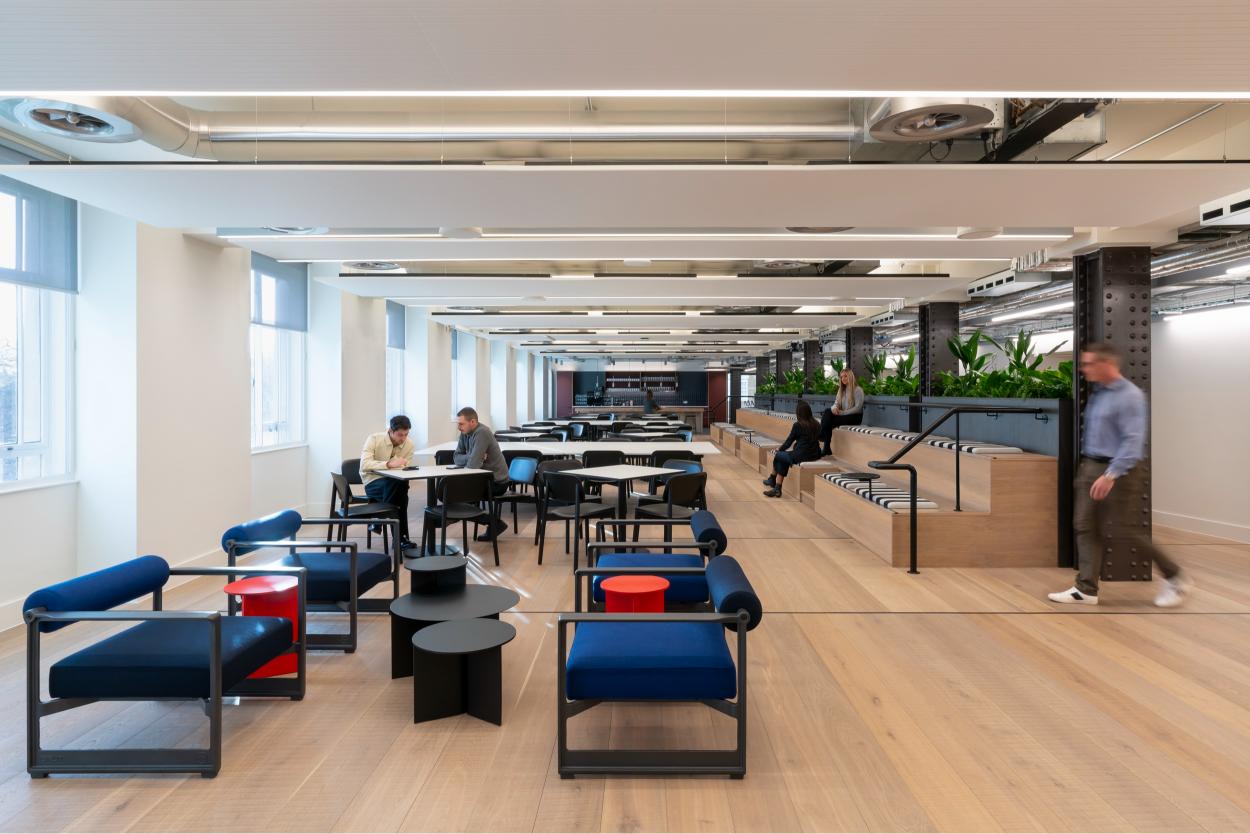UK Property Forums partner Vail Williams has picked the brains of some of the most forward-thinking minds in the property world, both from within its ranks and among its clients and contacts, for an in-depth look at the office and its future.
With the average number of days that people worked in the office rising to 3.1 days, 2023 was the year that many businesses hit the return to the office ‘sweet spot’.
According to the Virgin Media O2 Business Movers Index, 40 per cent of companies returned to a five-day office working week and this is continuing as we enter the second half of 2024.
Indeed, over three quarters (76 per cent) of businesses surveyed by law firm Irwin Mitchell have changed the amount of office space they occupied in the last 12 months or are planning to change it in future, with 34 per cent actually taking more office space in the last year.
Charlie Nicholson, agency partner at property consultancy Vail Williams, says a major contributing factor in overcoming the tug-of-war with employees over the return to the office has been the delivery of a ‘back to better’ strategy, rather than a draconian approach, with companies at pains to deliver a high-quality office environment, which is attractive enough to entice people back to the workplace.
This has seen the majority retain an element of hybrid working, bringing together a blend of amenities and collaborative workspaces at high-quality offices – either by working with their landlords to upgrade their existing premises, relocating to new offices which are fit for purpose, or a blend of both.
But does this approach deliver results? London-headquartered FTSE 250 recruitment firm, PageGroup thinks so.
With people at the heart of their business, PageGroup has always been an organisation focused on putting people first and, as such, its offices lie at the heart of its culture.
The challenge for the company was how to maintain the beating heart within the workplace, whilst also recognising that client / candidate / employee expectations had changed dramatically.
Working with legal advisers Irwin Mitchell, together with property experts at Vail Williams, they developed a new workplace strategy which was underpinned by a balanced approach to the needs of the business, its clients and its people. It embraced strategic principles such as unassigned desking and neighbourhoods, with technology as an enabler and a more inclusive and sustainable design.
Discussing their approach, Olly Wilkins, managing director – group procurement and property at PageGroup, said: “It had been clear for some time, even pre-dating the pandemic, that how we were using office space was changing. In the past, as much as 30 per cent of a typical office was being taken up by meeting rooms as, historically, much of our engagement with clients and candidates was face-to-face and office based.
“However, as recruitment became increasingly digital and with the rise of video, there was less of a need to hold in-person interviews or client meetings at our offices, resulting in areas of our portfolio being under-utilised.”
Together with technology improvements to better support flexible working and the prevalence of assigned desks for each person within the business, PageGroup recognised the potential to address space inefficiencies.
Olly added: “We proposed a complete rethink to the board around how we approached property, to embrace a modern workplace design with technology embedded, and a neighbourhood approach with unassigned desking, inclusive design and more sustainable, green features. All of this was aimed at supporting productivity and agility, attracting and retaining talent, and improving engagement and collaboration.”
The board agreed and the new strategy put PageGroup on the property front foot and led to the right-sizing and refurbishment of much of its property portfolio from London and Manchester to Leeds.
“The feedback has been incredibly positive from our leaders and teams, reinforcing that our drive to right-size our office premises and modernise our workplace to support hybrid working was absolutely the right approach,” said Olly.
So, what can other businesses learn from PageGroup’s experience of implementing a multi-site workplace strategy?
Charlie Nicholson, who supported the organisation with the implementation of their property strategy, said: “Like all businesses, PageGroup was looking at their property footprint post-pandemic but they recognised the importance of in-depth research to inform their approach early on – an approach which was tailored for each and every office location across the UK.
“They explored a range of ways to make sure their office portfolio was fit for purpose, and here are some of the key takeaways of their best practice approach.”
Do your homework
Charlie added: “With insight from Vail Williams, PageGroup invested in research into office usage statistics and task-based analyses, as well as employee sentiment, which gave them statistics to inform their property strategy.
“This allowed them to assess what would be best in each of their locations. They also accepted that the solution wouldn’t be the same for each location. This bespoke, rather than blanket approach to the return to the workplace, founded in conversations with the staff, research and usage statistics, was core to their success.”
Turn consolidation into a positive
“Ten years ago, when a company talked about consolidating its offices, this was perceived as a negative development,” Charlie said.
“Today, this is no longer the case because the motivation is not about losing people and reducing space, it’s about recognising an opportunity to adapt the workplace to meet the employees’ needs as much as those of the business.
“Most businesses don’t need as much office space as they did prior to the pandemic because they are operating a hybrid model – to one extent or another.
“This was something that PageGroup embraced early on and was not fearful of, resulting in us supporting them with consolidating 60,000 sq ft spread across three locations in London, to 40,000 sq ft of office space under one roof at 80 Strand in Covent Garden (pictured).
“By disposing of three buildings and shrinking their footprint by 33 per cent, we helped PageGroup to operate more efficiently under one roof, whilst allowing them to improve team interaction and attract people back to the office by offering a stunning, high-quality, amenity-rich environment at a world class cultural destination.”
Olly added: “The 80 Strand consolidation project enabled us to deliver on three major fronts – reducing space and saving money, whilst radically improving the value proposition to staff through the delivery of an accessible, amenity-rich environment.”
Invest in workplace design
PageGroup has re-designed and re-fitted its offices to a high standard across their portfolio, employing the services of expert fitout companies to design and implement the works to the highest standard.
The designs were founded on research into how its staff worked and utilised space to ensure the best use of the space available, providing town hall meeting areas and collaboration / break out spaces to spark creativity.
Martin Tilley, commercial director at Egg Design Build, who was responsible for the firm’s refurbishment projects in Leeds, Manchester and Birmingham, explained: “We worked closely with the property and facilities team at PageGroup to make sure our iterative designs created an optimum office design. We have also taken feedback and lessons learnt from each project to the next, and then readdressed any feedback on the earlier office projects.
“Working with PageGroup, who recognised and acknowledged the importance of the energy and sustainability credentials of the offices they were to occupy, particularly with their obligations under the Minimum Energy Efficiency Standards (MEES) in mind; we achieved an outstanding result in reducing carbon footprint.
“Responsibility and sustainability fuel our process. Supply chain partners, in-house MEP capabilities, design choices, they’re all strengthened when we look at them holistically through the lens of innovation. And in the end that means our clients get a responsibly designed, energy-efficient build that’s aligned with their creative vision.”
Sarah Swann, legal director at Irwin Mitchell who advised PageGroup, said: “PageGroup’s environmental consciousness enabled them to embrace modern workplaces boasting good environmental credentials – supporting not only their own ESG policies, but the desire of their people to work in offices with a lower carbon footprint. This goes against the trend we’ve identified nationally, whereby just under a third of businesses we surveyed, were concerned about whether or not their office would be MEES compliant.”
Re-gear, right-size and relocate
PageGroup was proactive in right-sizing its office space across their portfolio and invested the capital saved in its buildings to create an exciting place to work.
This was achieved in part through re-gearing and right sizing the footprint of leases in several locations including Reading, Manchester, Nottingham and Birmingham.
A lease re-gear allows businesses to save money on office footprints through consolidation of space, whilst reinvesting this on refurbishment to deliver modern office space for teams to benefit from.
Matt Edwards, project manager (property) at PageGroup, said: “We have been working with Egg Design Build for the past two years and have been impressed with the exceptional level of quality they have delivered on our programme of office refurbishments.
“At Brindley Place in Birmingham, they re-designed our fitout and we returned some of the space to the landlord under a lease surrender and re-grant of lease, to achieve what we wanted – to remain at this fantastic location, but with the space and design we needed.”
Charlie Nicholson added: “In Manchester, we supported PageGroup in acquiring and right sizing their office space with a move from Hardman Square at Spinningfields where they previously had 15,000 sq ft, to Two Hardman Street which boasts additional shared space providing a coffee bar, lounge, and yoga spaces, where they have taken 7,400 sq ft on a 10-year lease.
“Meanwhile in Leeds, the business relocated, taking a brand new lease with a smaller footprint which saw them move from Whitehall Riverside to Grade A office space at 12 King Street which offers workspace for collaboration as well as wellbeing activities, all in a building with EPC A, BREEAM Excellent and meeting all the right ESG credentials that Page requires.
“And in Reading, Vail Williams right-sized PageGroup’s office space from 7,500 sq ft to 5,000 sq ft at Apex Plaza, where they were committed to remain. As occupiers there ourselves, we can understand why! Owned by LGIM, Apex is situated in the town centre, offering quality office space in a central Reading location, next to the train station.”
Collaboration and communication
Core to the success of any new workplace strategy, from a property point of view, is a collaborative approach founded in clear communication.
That has played a significant role in the success that PageGroup has had, with each of its professional advisers, including Irwin Mitchell and Vail Williams, working hand in glove to ensure a smooth and transparent process.
PageGroup really has turned the page on its offices of old, and the ‘back to better’ approach is ongoing, but the business is already reaping the benefits of its multi-site strategy.
Olly concluded: “Implementing a multi-site strategy can be challenging, throughout 2023 we moved or regeared over 70 per cent of our footprint, but it has been helped not only by the multi-disciplinary support of Vail Williams and Irwin Mitchell, but the various other advisers we’ve engaged – from workplace designers to project managers.
“The results are office spaces that our teams are proud of, more than ever. If you are prepared as a business, to invest in your office space, you will find that your office will act as a magnet, attracting people back into a workplace they too can be proud of.”
With an estimated 90 per cent of companies expected to have returned to the office at least part of the time by the end of 2024, now is the time to embrace your return-to-work strategy, and there is a lot to learn from PageGroup’s success.
See gallery below (courtesy of Egg Design Build). It shows PageGroup’s offices at Leeds Birmingham and the new London premises at 80 The Strand.
© Thames Tap (powered by ukpropertyforums.com).
Sign up to receive our weekly free journal, The Forum here.









